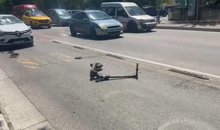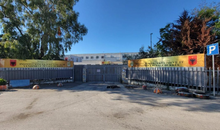
 Flash News
Flash News
Drenova prison police officer arrested for bringing drugs and illegal items into cell
Lavrov: NATO is risking self-destruction with new military budget
Kurti and Vučić "face off" tomorrow in Skopje
Construction worker dies after falling from scaffolding in Berat
The prosecution sends two Korça Municipality officials to trial
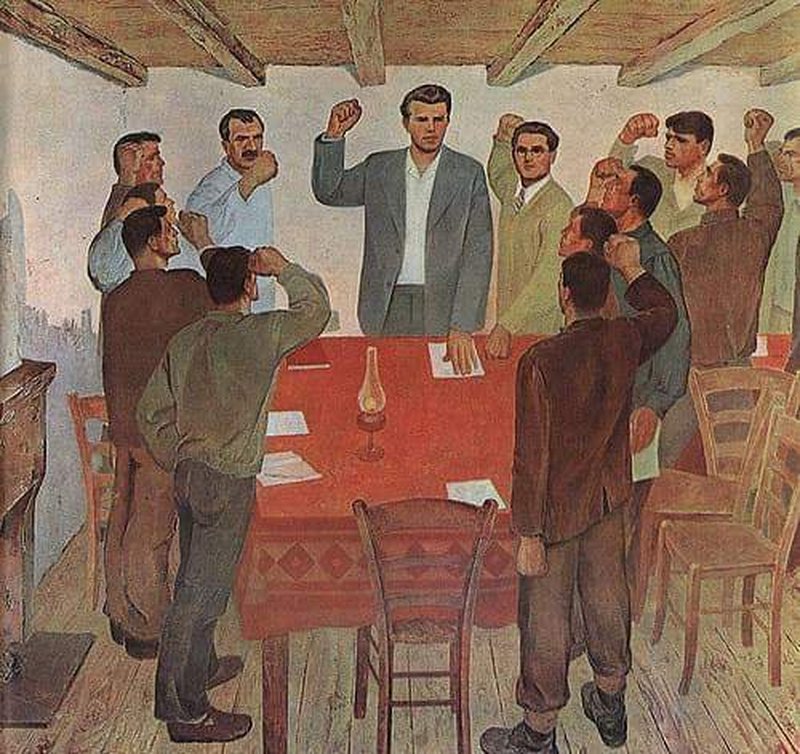
Exactly 80 years ago, the Communist Party (then Labor and now Socialist) of Albania was founded. Few events have had more consequences and impact on the history of the country than this, It can be said that the consequences continue to this day.
This painting has done in art, what Enver Hoxha and the Enverists did in the history books: they rewrote the history of that meeting by inventing a role that Enver Hoxha did not have, changing the positions around the table, the roles of the participants, wiping the faces of the majority who were convicted and declared enemies, or it became unacceptable to mention them. This includes two Yugoslavs, Miladin Popovic, and Dusan Mugosha, who turned Enver from an accidental participant in the meeting into the main figure of the party.
It can be said that Hoxha's first step towards power and reign in Albania for almost half a century was precisely to win the heart and sympathy of the two Yugoslavs, who due to the inferiority of the Albanian communists and the division of the three founding groups (Shkodra, Tirana, and Korça), became arbitrators and unofficial and unelected leaders of the new Albanian Communist Party.
Without the presence of these "ambassadors" from abroad, rival groups would have continued to resent, and it is no wonder that Albania would have ended up with two, if not three communist parties, as is customary.
Without Mugosha and Miladin, it is not known whether a figure as manipulative and dominant as Enver would have come on the scene and had had time to strengthen his leadership position so much.
It is much more likely that in addition to the civil war that was an integral part of the anti-fascist war in Albania, there was also inter-partisan war. This would make the Fronti less powerful and the Albanian left wing to remain as divided into ideological and provincial lines as the right-wing.
Unlike what happened in the left camp, the Albanian right had no arbitrators or external figures to stand on the sides and be able to harmonize positions and unite the barrels of the weapons of non-democratic, at least Albanian anti-communist, factions. north to south, from west to east, Republicans, and legalists, left-wing non-communists, and right-wingers of various colors, especially nationalists.
Perhaps, unlike the internationalist left, the right, by nature, finds it more difficult to accept an external mediator, a conciliator of the parties that comes with similar ideological credentials.
However, today, 80 years after the event that tore the modern history of Albania in two, it can be said that the problem of the Albanians was probably not simply the establishment of a Communist Party with friends in Yugoslavia, allies, and masters in half of the continent that turned red from socialism, but the right did not have its "November 8".
Nationalists and anti-communists hoped in the last years of the war that an outside intervention - perhaps the "British" - would create a more balanced situation in Albania, as was created in neighboring Greece where the civil war continued until 1949, but this did not happen. . The British and Americans who entered Albania, unlike the Yugoslavs, not only could not force the Albanians to join a front but were themselves undecided and divided.
Only after the war, when they began planning a foreign intervention in Albania, did the Americans show little of the arrogance and impatience that should have been shown from the beginning to the Albanian anti-communist disputes forcing them to unite.
The irony that this 80th anniversary comes at a time when the crumbling right in Albania is splitting once again under the fever of the next inter-fraternal war, is truly poignant. It is really impossible to turn back time and see the way how they got here, from the huge pile of beetroot lessons.
Latest news



Second hearing on the protected areas law, Zhupa: Unconstitutional and dangerous
2025-06-30 22:18:46



Israel-Iran conflict, Bushati: Albanians should be concerned
2025-06-30 21:32:42

Fuga: Journalism in Albania today in severe crisis
2025-06-30 21:07:11
"There is no room for panic"/ Moore: Serbia does not dare to attack Kosovo!
2025-06-30 20:49:53

Temperatures above 40 degrees, France closes nuclear plants and schools
2025-06-30 20:28:42
Lavrov: NATO is risking self-destruction with new military budget
2025-06-30 20:13:54
Turkey against the "Bektashi state" in Albania: Give up this idea!
2025-06-30 20:03:24

Accused of sexual abuse, producer Diddy awaits court decision
2025-06-30 19:40:44



Kurti and Vučić "face off" tomorrow in Skopje
2025-06-30 18:44:12
Tourism: new season, old problems
2025-06-30 18:27:23


Construction worker dies after falling from scaffolding in Berat
2025-06-30 17:51:44




Almost free housing: East Germany against depopulation
2025-06-30 16:43:06

Hamas says nearly 60 people killed in Gaza as Trump calls for ceasefire
2025-06-30 16:14:15
Drownings on beaches/ Expert Softa: Negligence and incompetence by institutions!
2025-06-30 16:00:03


European ports are overloaded due to Trump tariffs
2025-06-30 15:30:44
The prosecution sends two Korça Municipality officials to trial
2025-06-30 15:19:54

Lezha/ Police impose 3165 administrative measures, handcuff 19 drivers
2025-06-30 14:55:04
Young people leave Albania in search of a more sustainable future
2025-06-30 14:47:52
Record-breaking summer, health threats and preventive measures
2025-06-30 14:36:19


Constitution of the Parliament, Osmani invites political leaders to a meeting
2025-06-30 14:07:54

Heat wave 'invades' Europe, Spain records temperatures up to 46 degrees Celsius
2025-06-30 13:42:02
Accident in Vlora, car hits 2 tourists
2025-06-30 13:32:16

Kurti confirms participation in today's official dinner in Skopje
2025-06-30 13:03:27

Fight between 4 minors in Kosovo, one of them injured with a knife
2025-06-30 12:38:45

Report: Teenage girls the loneliest in the world
2025-06-30 12:20:40
Commissioner Kos and Balkan leaders meet in Skopje on Growth Plan
2025-06-30 12:07:59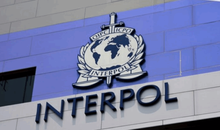
Wanted by Italy, member of a criminal organization captured in Fier
2025-06-30 11:55:53
Hundreds of families displaced by wave of Israeli airstrikes in Gaza
2025-06-30 11:45:17

Zenel Beshi: The criminal who even 50 convictions won't move from Britain
2025-06-30 11:23:19
A new variant of Covid will circulate during the summer, here are the symptoms
2025-06-30 11:14:58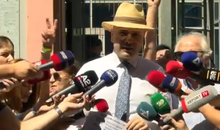

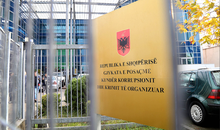
"Partizani" case, trial postponed to July 21 at the Special Court
2025-06-30 10:41:05
Uncontrolled desire to steal, what is kleptomania, why is it caused
2025-06-30 10:30:08
Requested change of security measure, hearing for Malltez postponed to July 7
2025-06-30 10:24:32
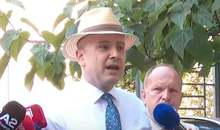

Output per working hour in Albania 35% lower than the regional average
2025-06-30 09:54:35

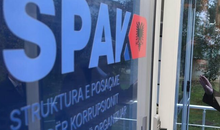
The trial for the "Partizani" file begins today
2025-06-30 09:27:57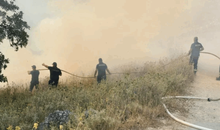
22 fires in the last 24 hours in the country, 2 still active
2025-06-30 09:21:28
How is the media controlled? The 'Rama' case and government propaganda
2025-06-30 09:13:36
German top diplomat: Putin wants Ukraine to capitulate
2025-06-30 09:00:07
Foreign exchange, how much foreign currencies are sold and bought today
2025-06-30 08:44:38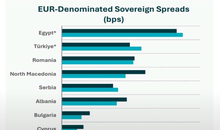
Chart/ Sovereign risk for Albania from international markets drops significantly
2025-06-30 08:26:38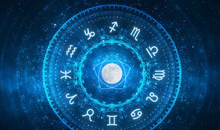
Horoscope, what do the stars have in store for you?
2025-06-30 08:11:44
Clear weather and passing clouds, here is the forecast for this Monday
2025-06-30 07:59:32
Morning Post/ In 2 lines: What mattered yesterday in Albania
2025-06-30 07:47:37
Milan make official two departures in attack
2025-06-29 21:57:23
6 record tone
2025-06-29 21:30:46
4-year-old girl falls from balcony in Lezha, urgently taken to Trauma
2025-06-29 21:09:58


Assets worth 12 million euros seized from cocaine trafficking organization
2025-06-29 19:39:43
Fire in Durrës, Blushi: The state exists only on paper
2025-06-29 19:17:48

Fire endangers homes in Vlora, helicopter intervention begins
2025-06-29 18:27:51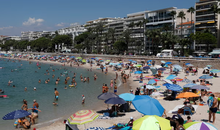
France implements smoking ban on beaches and parks
2025-06-29 18:02:08
England U-21 beat Germany to become European champions
2025-06-29 17:42:49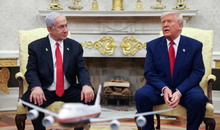
Trump criticizes Israeli prosecutors over Netanyahu's corruption trial
2025-06-29 17:08:10
Street market in Durrës engulfed in flames
2025-06-29 16:52:57
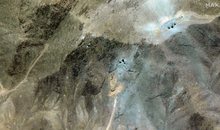
UN nuclear chief: Iran could resume uranium enrichment within months
2025-06-29 16:03:24
Albanian man dies after falling from cliff while climbing mountain in Italy
2025-06-29 15:52:01

Another accident with a single-track vehicle in Tirana, a car hits a 17-year-old
2025-06-29 15:07:15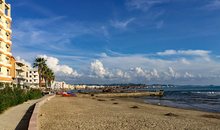
While bathing in the sea, a vacationer in Durrës dies
2025-06-29 14:54:01
Sentenced to life imprisonment, cell phone found in Laert Haxhiu's cell
2025-06-29 14:26:40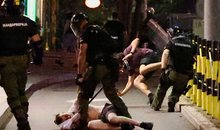
77 people detained in protest, Vučić warns of new arrests
2025-06-29 14:07:46